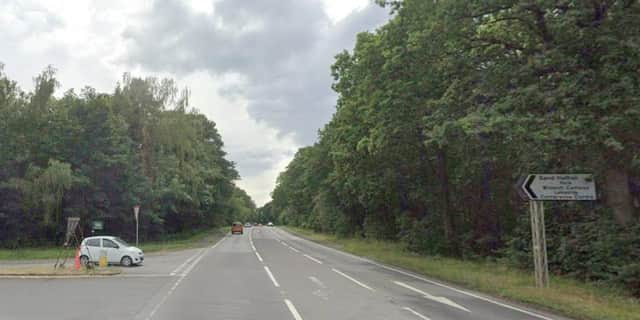Crematorium plans which would have seen funeral corteges processing along road linked to deaths rejected


Members of North Yorkshire Council’s strategic planning committee voted against the Westerleigh Group’s plan to site the crematorium in open countryside at Sand Hutton, north of York beside the A64, after hearing it could also impact on nationally important research undertaken at the neighbouring York Biotech Campus.
An agent for the firm had told the meeting there was an established need for the facility as the former Ryedale district area does not have a crematorium and current crematoria in the surrounding area were working “over capacity”.
Advertisement
Hide AdAdvertisement
Hide AdHe said there was support for a new crematorium from funeral directors, who wanted “to give bereaved families the best possible experience in the worst possible of times”, whether that be through increased capacity so they could arrange a funeral at a time of their choosing, reduced travel time or the experience they have at the crematorium.
The agent said there were “no technical reasons” on grounds such as road safety that would prevent the development of a crematorium on the site and studies had shown there would be no harm to the environment or air quality from the proposed facility.
He said: “A crematorium is probably one of the best neighbouring land uses one could possibly get given the tranquility and respect people show at times of great sadness.”
However, the meeting was told the 13 scientific organisations based at the campus, which represented “a critical piece of national infrastructure” in terms of the testing for outbreaks such as foot and mouth disease and avian flu, had objected to the proposal.
Advertisement
Hide AdAdvertisement
Hide AdCouncillors were told there were widespread concerns among the firms over the impact emissions from a neighbouring crematorium would have on their research, such as the impacts of traffic on bees.
The meeting heard a crematorium would compromise the needs of the adjacent science and business park, which provided highly-skilled jobs to about 400 people.
Sheriff Hutton and Derwent division councillor Caroline Goodrick told the meeting the applicants had failed to demonstrate sufficient qualitative need for the crematorium to justify siting it on a rural greenfield site and their proposal had in fact received scant support from funeral directors in the area.
The meeting heard the development would “considerably impede traffic on the A64” at a point where, a former police officer underlined, motorists faced making “an extremely hazardous manoeuvre” just to join the road.
Advertisement
Hide AdAdvertisement
Hide AdCouncillors were told ambulances travelling to emergencies could get stuck behind a funeral cortege travelling at 20mph and some 40-minute funeral slots could be missed altogether due to the regular congestion on the stretch of road.
Members were told there had been four accidents in the last 12 months and due to it being a single-carriageway stretch of the road with bends there was no chance for drivers to overtake safely.
The meeting saw officers’ conclusion that the site was sustainable questioned, as few people would chose to attend funerals by bus.
Councillors added while the venture appeared to be targeted towards York’s population, the city already had a centrally located crematorium which most of its residents would prefer to use and there was no issue with volume of provision on alternative sites.
